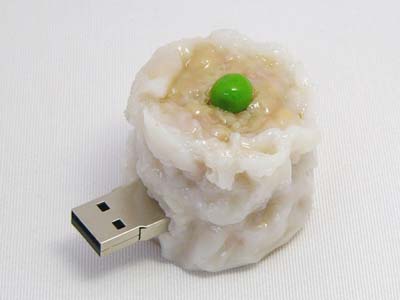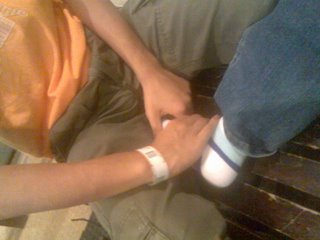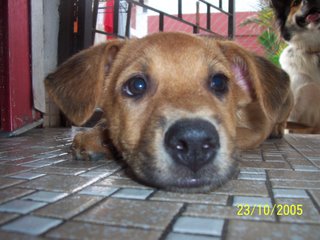Premenstrual Syndrome (PMS)
Premenstrual Syndrome (PMS) refers to uncomfortable physical and mental symptoms that occur before the onset of the woman’s menstrual period. PMS is the name of a group of symptoms that start 7 to 14 days before your period (menstruation). The symptoms usually stop soon after your period begins. Estimates of affected women range from 40 to 80%. About 5% of women experience symptoms that cause them severe impairment. PMS may start at any time during the years that a woman menstruates. The peak occurrence is in the 20s and 30s. Once PMS begins, the symptoms often continue until menopause.
*Oh My God.... Am i having PMS now???* *sigh*
About 150 separate symptoms have been documented, but it is unlikely that any one woman will have all of them. Some of the symptoms of PMS are listed in the box below. Your symptoms may be worse some months and better others.
Symptoms of PMS
- Acne
- Bloated abdomen
- Constipation
- Crying spells
- Depression
- Fast heartbeat
- Feeling hungry
- Feeling irritable or tense
- Feeling tired
- Feeling anxious
- Forgetfulness
- Confusion
- Headache
- Joint pain
- Back pain
- Mood swings
- Not feeling as interested in sex
- Tender and swollen breasts
- Trouble concentrating
- Trouble sleeping
- Swollen hands or feet
- Wanting to be alone
- Weight gain
- Nausea
*Yea... i'm having a headache now... and...... my mood is just...... not stable......* =(
*Oh well... Most WOMAN have this.... LoLx~*
*i would like to apologize first.... to those i will hurt in the future... you know... when my temper or anything shoot up** *it wll happen once a month... and it DOES happen once a month**
*Well.... here are some tips for WOMANsssss**
Tips on controlling PMS
- Eat complex carbohydrates (such as whole grain breads, pasta and cereals), fiber and protein. Cut back on sugar and fat.
- Avoid salt for the last few days before your period to reduce bloating and fluid retention.
- Cut back on caffeine to feel less tense and irritable and to ease breast soreness.
- Cut out alcohol. Drinking it before your period can make you feel more depressed.
- Try eating up to 6 small meals a day instead of 3 larger ones.
- Get aerobic exercise. Work up to 30 minutes, 4 to 6 times a week.
- Get plenty of sleep--about 8 hours a night.
- Keep to a regular schedule of meals, bedtime and exercise.
- Try to schedule stressful events for the week after your period.
How is PMS treated?
There is no cure for PMS, but eating a healthy diet, exercising regularly and taking medicine may help. Your doctor will talk to you about whether you need to change your diet and exercise habits. He or she may also prescribe medicine for you, depending on what your symptoms are.
You may need to try more than one medicine to find the treatment that works for you. Many medicines are available over-the-counter, but some require a doctor's prescription. Medicines that can be prescribed include diuretics, antidepressants and birth control pills. Other medicines for PMS are being studied.
What about vitamins and other home remedies?
You may have read that some vitamins and other supplements, such as vitamin B6, vitamin E, magnesium, manganese and tryptophan, can help relieve PMS. There haven't been many studies about these treatments, and it's possible that they could do more harm than good. For example, vitamin B6 and vitamin E can cause side effects if you take too much. Talk to your doctor if you're thinking of trying any of these vitamins or supplements.
On the other hand, taking calcium pills may reduce symptoms of water retention, cramps and back pain. Taking about 1,000 mg of calcium a day probably won't be harmful, especially because calcium has so many other benefits, such as being good for your bones.
*sigh.. lecehnya perempuan~* -_-
this is the disadvantage of being a female... i wonder does male have PMS??? *wondering*

























